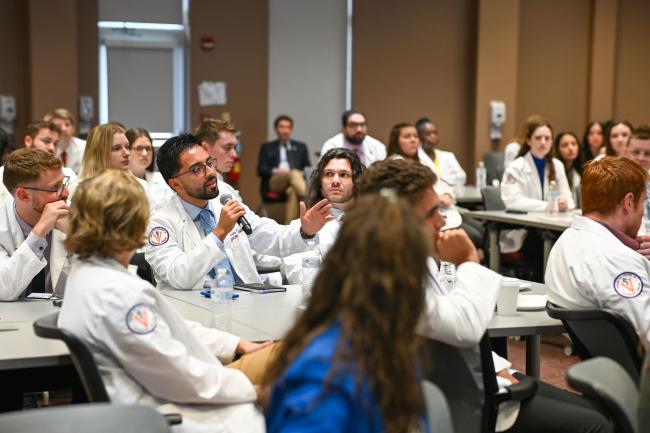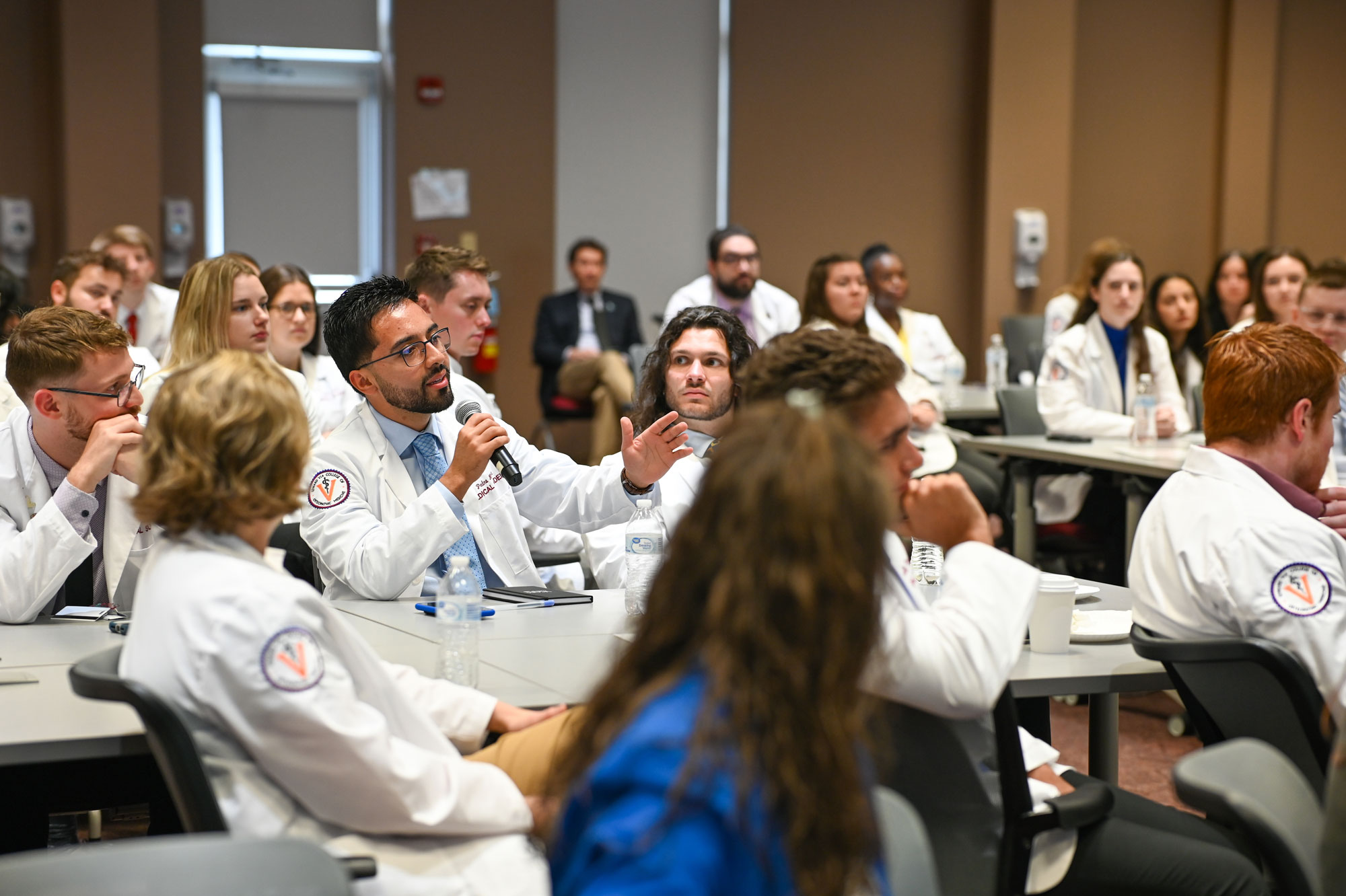
VCOM-Virginia Symposium Highlights Collaboration in Tackling Regional Health Disparities
On Sept.24, the VCOM–Virginia hosted the inaugural event in its Community Outreach Research and Education (CORE) symposium series, “Expanding Holistic Health with Community Partnerships.” The symposium brought together healthcare providers, public officials, law enforcement, social service professionals, and community leaders to explore collaborative approaches to improving health outcomes across rural and underserved communities in Southwest Virginia.
The key to the symposium is osteopathic medicine’s emphasis on treating the whole patient. Health is impacted by a host of factors, including socioeconomic status, access to community support and transportation, stability of housing, food insecurity, and more. The work of the community partners who participated in the symposium is focused on many of these issues.
The event opened with remarks from Noelle Bissell, MD, director of the New River Valley Health District, whose presentation, “Our NRV Home and Community Impact,” set the tone for the day. Dr. Bissell emphasized that effective healthcare requires partnerships that extend beyond traditional medical settings. Physicians and community groups must meet people where they are—physically, culturally, and emotionally. She highlighted the importance of understanding how everyday circumstances affect health, investing in prevention, and creating lasting systems of support that help people make healthy decisions.
The keynote address was delivered by Michael R. Kramer, PhD, professor of social epidemiology and director of the Center for Rural Health at Mercer University School of Medicine. His work employs data visualization and spatial analysis tools to identify regions of greatest need and inform targeted interventions that reduce chronic and complex health conditions. In his address, Dr. Kramer discussed the importance of understanding how early life experiences and community conditions shape long-term health outcomes. The heart of the symposium, however, was the student research showcase. Second-year VCOM medical students presented findings from their period of service and group research projects conducted through the CORE Program, which connected students with 18 community-based organizations (CBOs) across Southwest Virginia. The student posters highlighted innovative, evidence-based approaches to pressing local challenges such as food insecurity, homelessness, trauma and addiction recovery, maternal and child health, fundraising, and access to care.
These projects not only provided valuable insights for community partners, but also fostered opportunities for collaboration among organizations working toward shared goals. As one student reflected, “Serving in the community has changed the way I see medicine—it’s not just about treating illness, it’s about being present and understanding people’s lives.”
The CORE Program—co-directed by Bernard Kadio, MD, PhD, MPH, VCOM-Virginia’s chair of preventive medicine, and Jess Nicholson, MAT, MPH(c), VCOM’s director of community outreach and public health—is part of VCOM’s commitment to community-engaged learning. Each CORE team of students partners with a local organization to co-develop research questions, collect and analyze data, and translate findings into actionable solutions that will directly benefit the community.
This was the first year of the CORE model, part of VCOM’s preventative medicine curriculum. In future years, new cohorts of student doctors will continue and expand upon the work of previous teams—creating sustained partnerships and long-term impact with the CBOs.
Reflecting on the day’s success, Nicholson shared, “Opportunities like this matter because they shape our students into the kind of physicians we all hope for: compassionate, community-minded, and aware of the bigger picture of health.”
Blacksburg councilman Liam Watson echoed the sentiment: “The symposium was fantastic—I only wish more people could have experienced it. I’m excited to share the incredible work being done by [VCOM] students and these organizations.”
Through CORE, VCOM continues to strengthen its role as both an educational institution and a community partner—building bridges between medicine, public health, and local organizations to create healthier, more resilient communities.
If you would like more information on the program, please visit https://www.vcom.edu/core.





